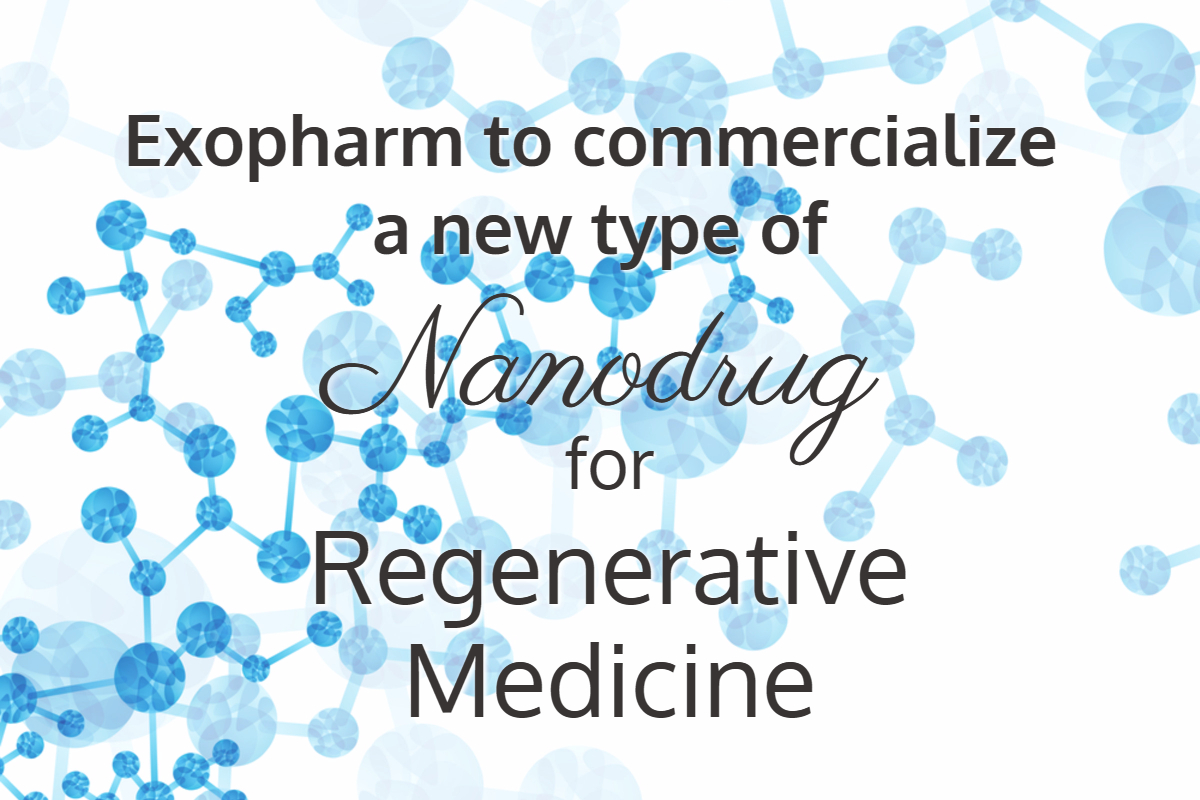May 5, 2017, Melbourne, Australia — A private Australian biotechnology company called Exopharm has announced its investment to bring a completely new type of drug called exosomes into local clinical trials.
Exopharm is founded and backed by Dr Ian Dixon, the Melbourne-based technology innovator behind an ASX-listed cell therapy company, the anisina anticancer drug and the Altnia Group incubator. After more than 3 years of secret R&D, Altnia is spinning Exopharm out as a specialist company to translate the promising scientific research around exosomes into routine clinical use worldwide for regenerative medicine. Exopharm will build on its patented purification technology called LEAP to make its proprietary exomeres in large scale and at low cost.

Dr Dixon, also a non-executive director of Noxopharm Ltd, said “we expect Exopharm to become a public company later in 2017 and build a high profile with the investment community based on the growth potential of our disruptive technology to solve some of the biggest medical problems such as eye diseases, fibrosis, neurodegeneration and aging-related conditions such as osteoporosis.”
Overseas, sophisticated venture capitalists, fund managers and investors have been making significant investments over the past 24 months into a small but growing number of exosome-based biotechnology companies, highlighting the potential seen in this recently emerging field. “Such investments provide us with an important level of third-party validation – something investors and brokers always look for”.
Exopharm sees that medical-grade exosomes will be disruptive to the cell therapy industry that has spent billions of dollars so far with little clear benefit for a majority of patients. Exosomes also have the potential to drive down the end-to-end treatment costs compared with present cell based therapies under development.
“We see that Exopharm will do its early development and clinical trials in Australia and then transition into the Japanese and USA markets” said Dr Dixon. “Japan is a focus because they have recently established a fast-track regulatory framework for regenerative medicines reaching sales. The USA is a focus because of the proximity to the world’s largest medicines market, the interest in regenerative medicine in Silicon Valley and the partnering prospects with Pharma companies.”
The core innovative team at Exoph arm has been assembled over the past 2 years, and these people have previous international experience in regenerative medicine, cell therapy manufacture and clinical trials. “We will be hiring more people into the team over the next 12 months, and Melbourne has an impressive pool of experienced biologics experts to tap into” said Dr Dixon.
arm has been assembled over the past 2 years, and these people have previous international experience in regenerative medicine, cell therapy manufacture and clinical trials. “We will be hiring more people into the team over the next 12 months, and Melbourne has an impressive pool of experienced biologics experts to tap into” said Dr Dixon.
The Victorian government has supported biotechnology over many years and we anticipate building a high-tech manufacturing plant in Melbourne in CY 2018/9 to service the world market for research-grade and clinical-grade exomeres.
Australia is also well-suited as a location for early-stage clinical trials, with innovative medical professionals seeking to offer patients access to the latest innovations in medical care. Exopharm has been founded by Dr Ian Dixon and his mission is to profoundly change how regenerative medicine is done by harnessing the innate but underutilized regenerative capacity of exosomes/extracellular vesicles.
Dr Dixon said “Our company aims to provide patients and medical professionals with low-cost and safe proprietary pharma-grade exosomes (we call them exomeres) as a cell-free medicine to reclaim health and regeneration in areas such as dry AMD, tendinopathy, arthritis, cardiac repair, neurodegeneration and ageing”.
Dr Dixon said “As a team, and with our expert advisors, we can harness the experience learned in previous ventures to speed development, reduce risks and minimize costs. Once our pilot-scale manufacturing plant is established we can supply high-value exomeres world-wide for therapeutic and research uses.”
Exopharm is emerging as a leader in the field of exosomes/extracellular vesicles (EVs) – bi-layer nanovesicles (40-200nm diameter) naturally produced and taken up by cells. EVs are a central biological mechanism preserved over millions of years and across many different forms of life (mammals, birds, worms, plants) to allow networks of cells to co-ordinate processes involved in tissue repair and healing, pregnancy, development to adulthood, inflammation and maintenance of health.
Exopharm is in the process of partnering with some key researchers to support their efforts to better understand EVs. Exopharm can support researchers to answer key questions and that improved understanding will help us achieve our commercial goals and reduce development risks.
A recent academic study in Egypt (Nassar et al 2016) treated 20 patients with kidney disease and showed safety and efficacy of exosomes purified from cord blood mesenchymal cells using a cumbersome, non-commercial technology called ultracentrifugation. Exopharm’s new technology that uses a proprietary molecule to pull exosomes out of solution is a high-yield technique that is gentler on the nanovesicles than ultracentrifugation which is the acknowledged bottleneck in the purification step. “Our patented LEAP technology could do in 2 days what researchers take 150 days to do with an ultracentrifuge, based on our much higher purification yield and easier process.” said Dr Dixon.
Source: Exopharm Press Release




















Tell Us What You Think!